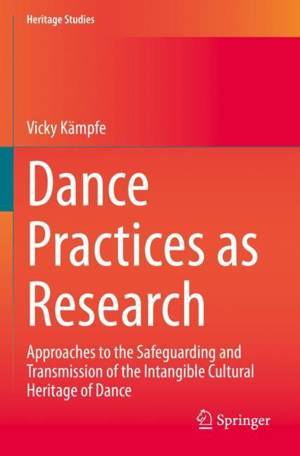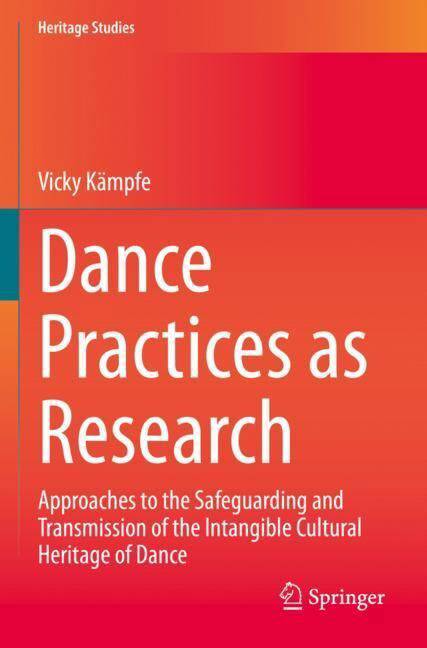
- Afhalen na 1 uur in een winkel met voorraad
- Gratis thuislevering in België vanaf € 30
- Ruim aanbod met 7 miljoen producten
- Afhalen na 1 uur in een winkel met voorraad
- Gratis thuislevering in België vanaf € 30
- Ruim aanbod met 7 miljoen producten
Dance Practices as Research
Approaches to the Safeguarding and Transmission of the Intangible Cultural Heritage of Dance
Vicky KämpfeOmschrijving
This book contributes to the growing scientific literature on 'intangible cultural heritage' - determined by UNESCO to be particularly worthy of safeguarding and transmission - by advancing a theoretical-analytical framework for the (in)tangible cultural heritage of dance. By exploring the potential of the 'intangible materiality' of dance practice the book argues that implementing the concept of a 'performative dance-archive' creates a new analytic field: research in praxis.
The concept of the 'performative dance-archive' draws out the potential for safeguarding and transmission of dance heritage, but also the challenges of the opposition between living heritage and the codifying of cultural inventories. This book uses the formal and contextual transformation of Argentine tango and German modern dance to discuss this ambiguity of intangible heritage and how the "performative dance-archive" creates a cognitive, empractical approach to determine, archive, and distribute danceknowledge.
This is a timely methodological intervention in the context of the increasing importance of the intangible cultural heritage. It enables us to re-revise the concept of (im)materiality and the specific knowledges within cultural practice as a necessary fundamental category for research-processes and societal growth. This book is directed both to researchers in the field of intangible cultural heritage and to practitioners and researchers searching for new ways of investigating methods and perspectives to understand 'immaterial materialities'.
Specificaties
Betrokkenen
- Auteur(s):
- Uitgeverij:
Inhoud
- Aantal bladzijden:
- 155
- Taal:
- Engels
- Reeks:
Eigenschappen
- Productcode (EAN):
- 9783031305832
- Verschijningsdatum:
- 20/05/2024
- Uitvoering:
- Paperback
- Formaat:
- Trade paperback (VS)
- Afmetingen:
- 155 mm x 235 mm
- Gewicht:
- 316 g

Alleen bij Standaard Boekhandel
Beoordelingen
We publiceren alleen reviews die voldoen aan de voorwaarden voor reviews. Bekijk onze voorwaarden voor reviews.











